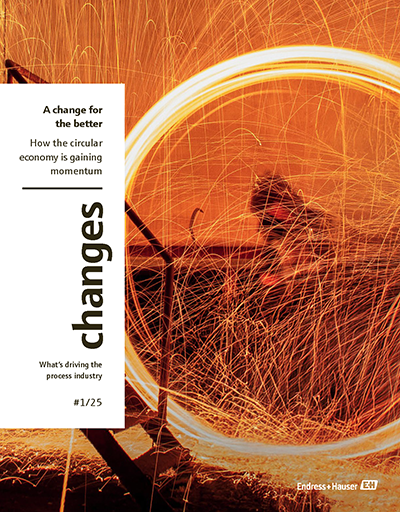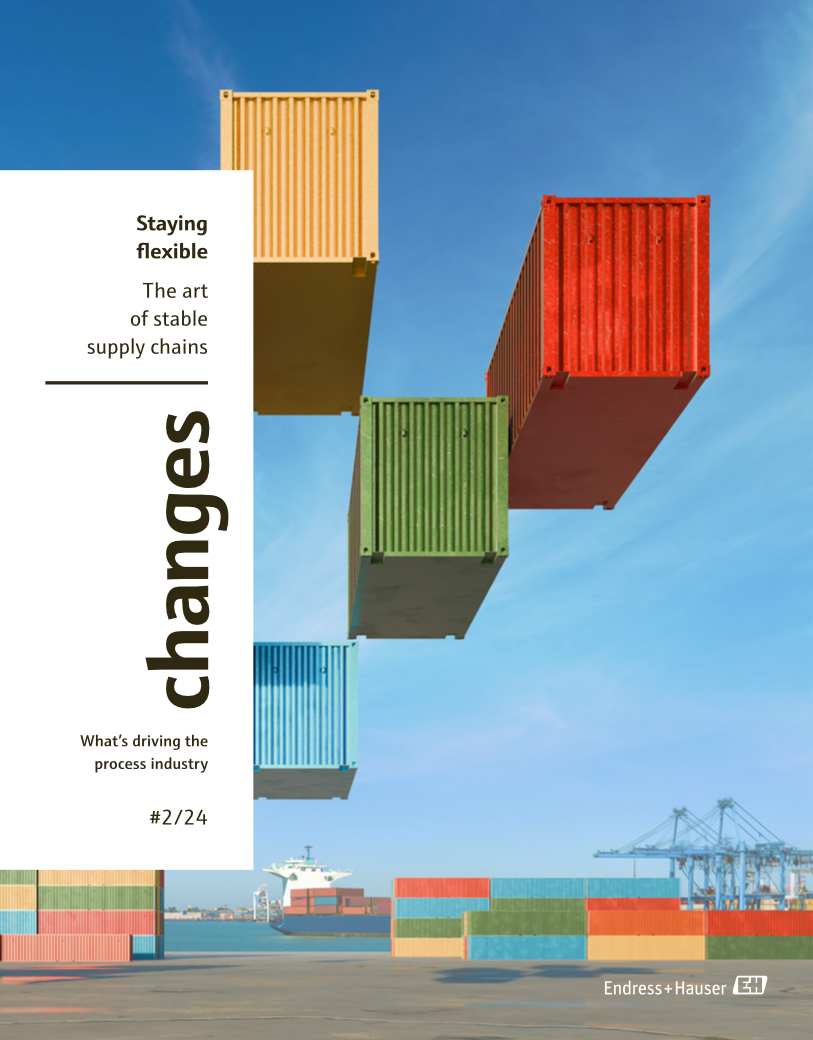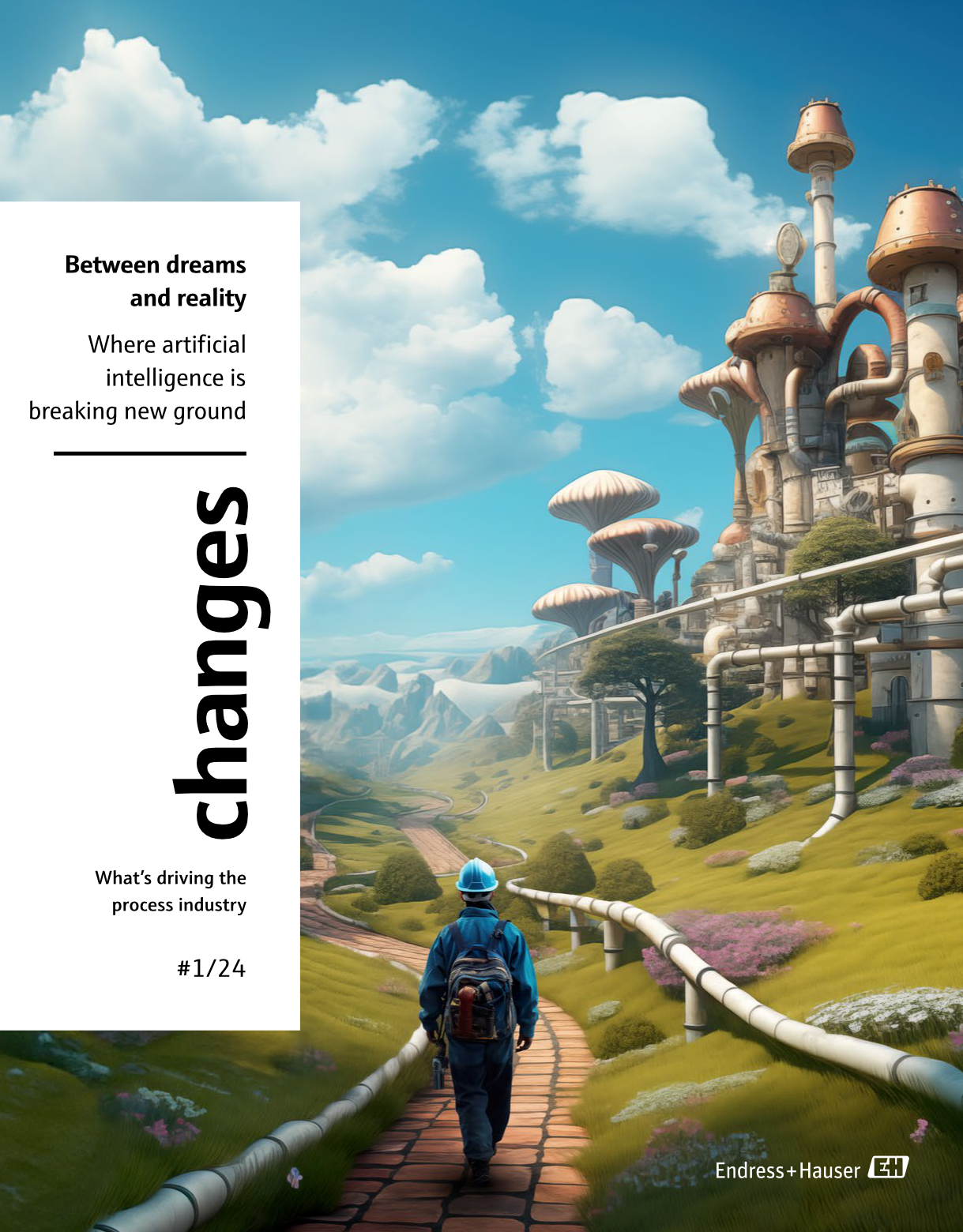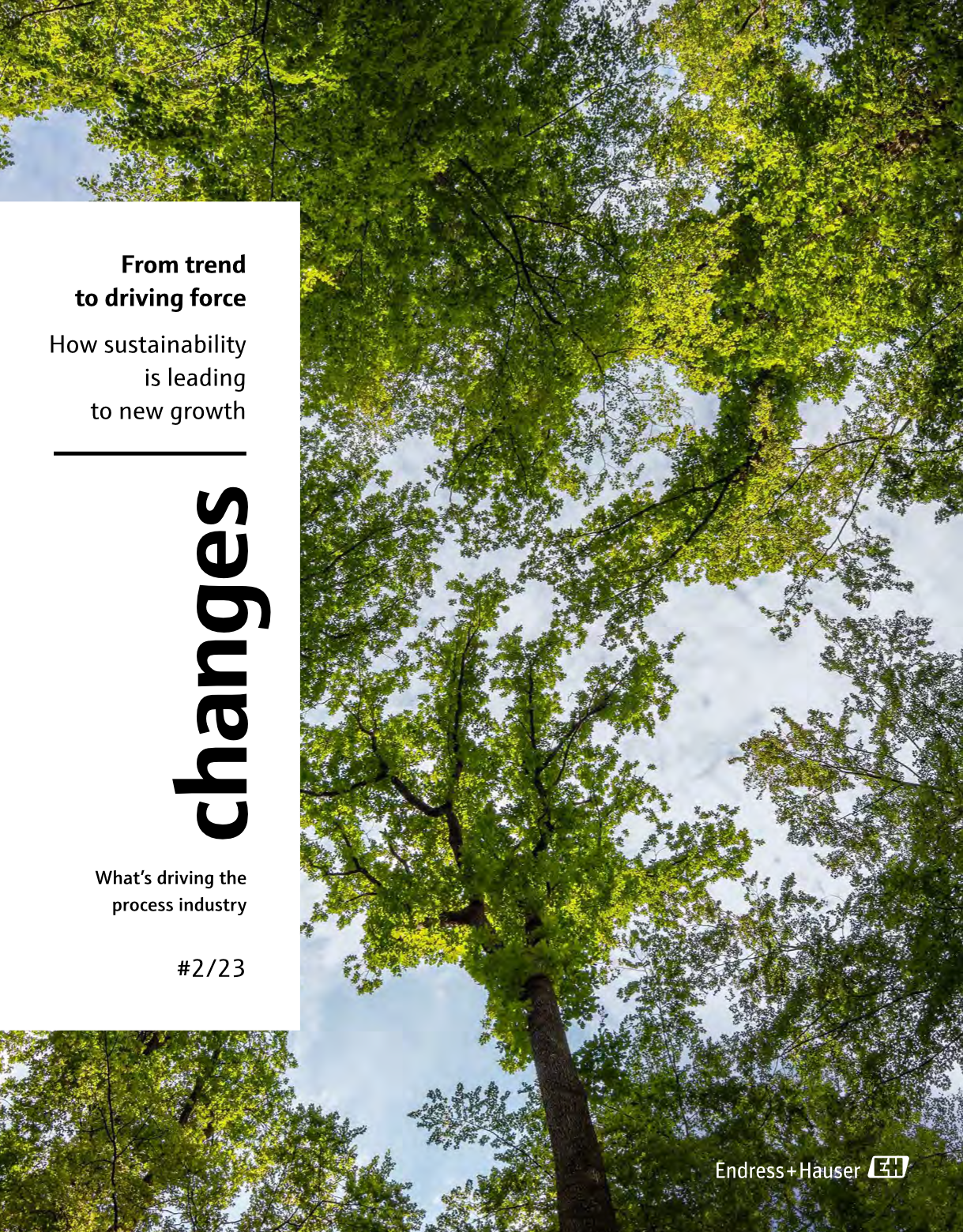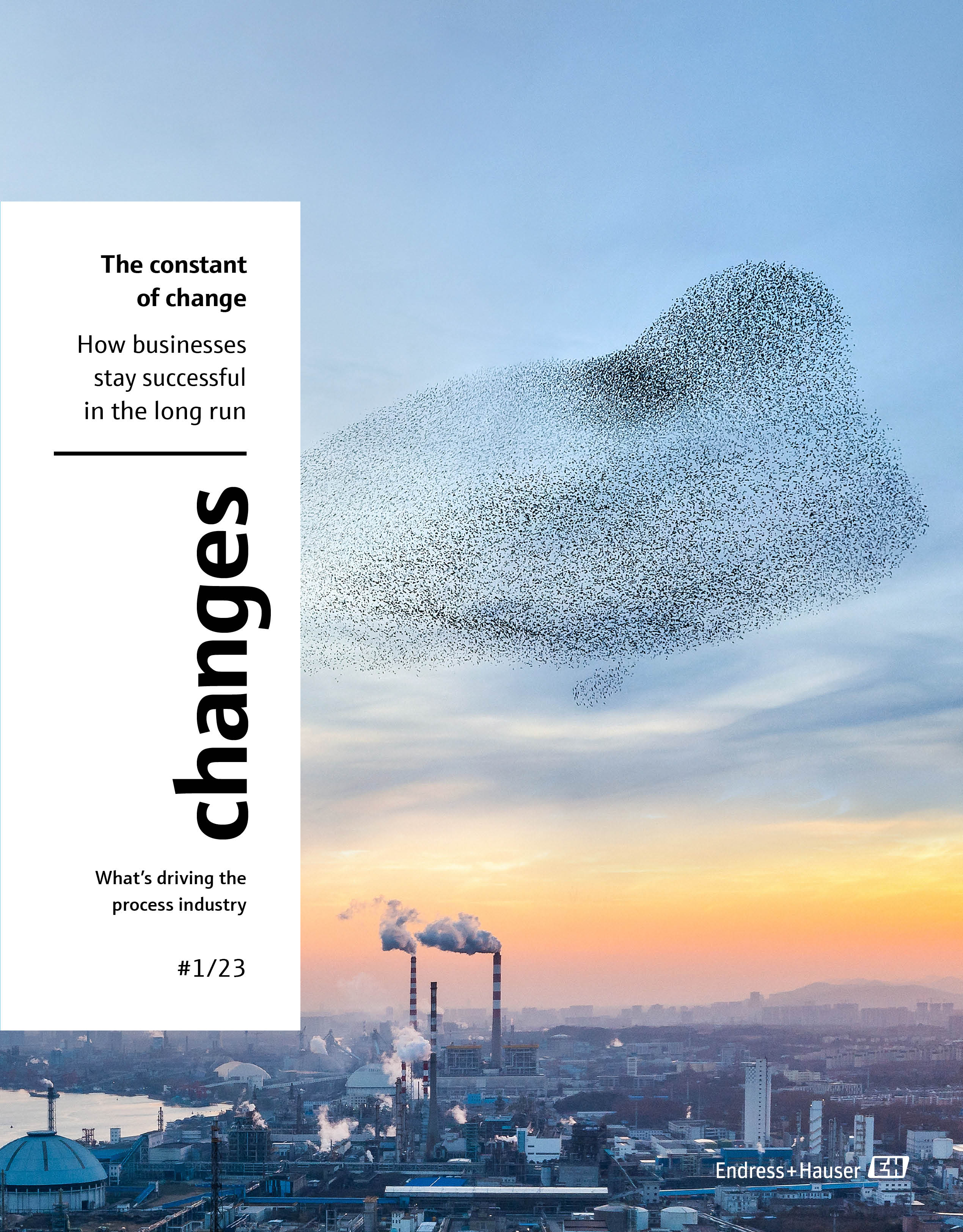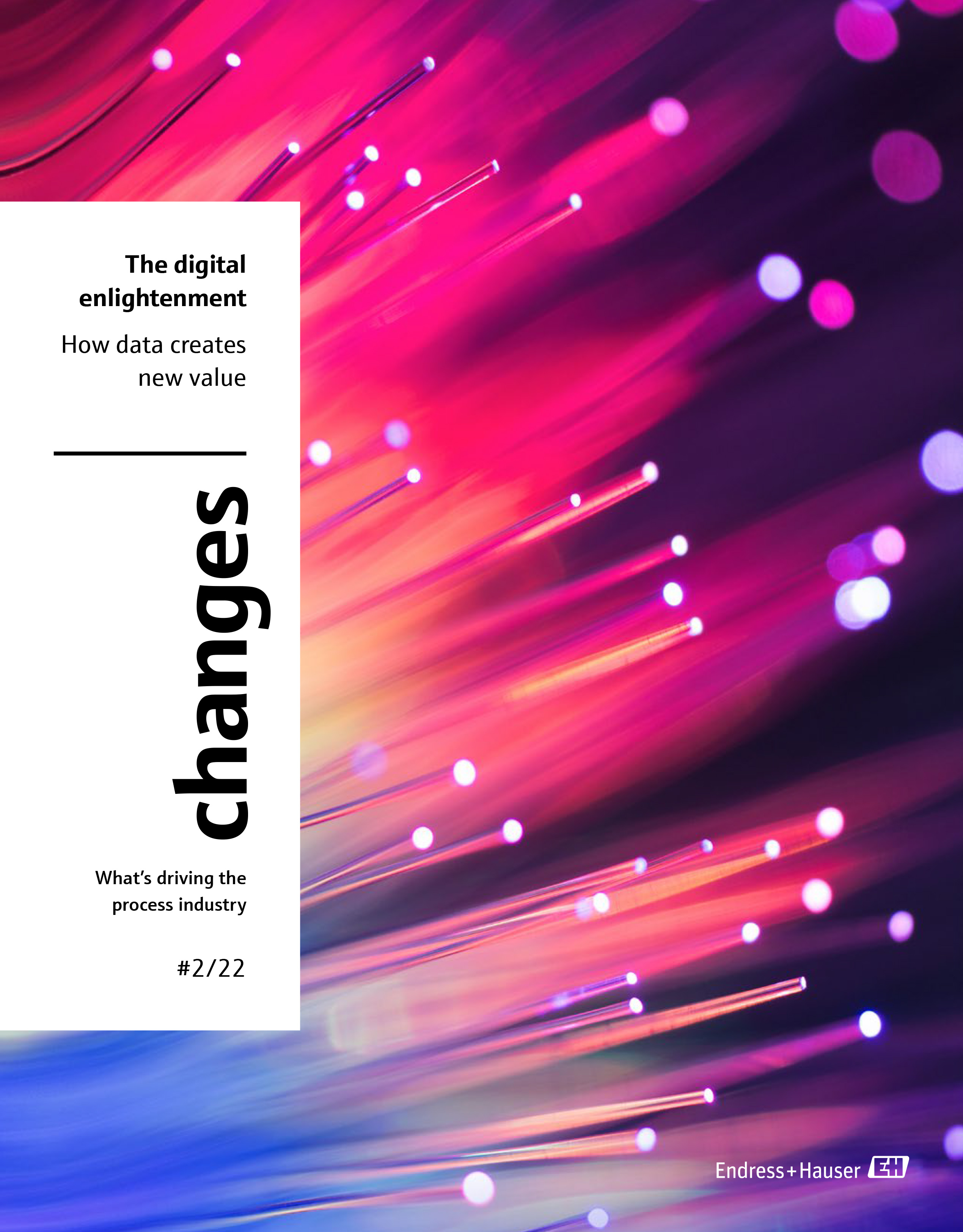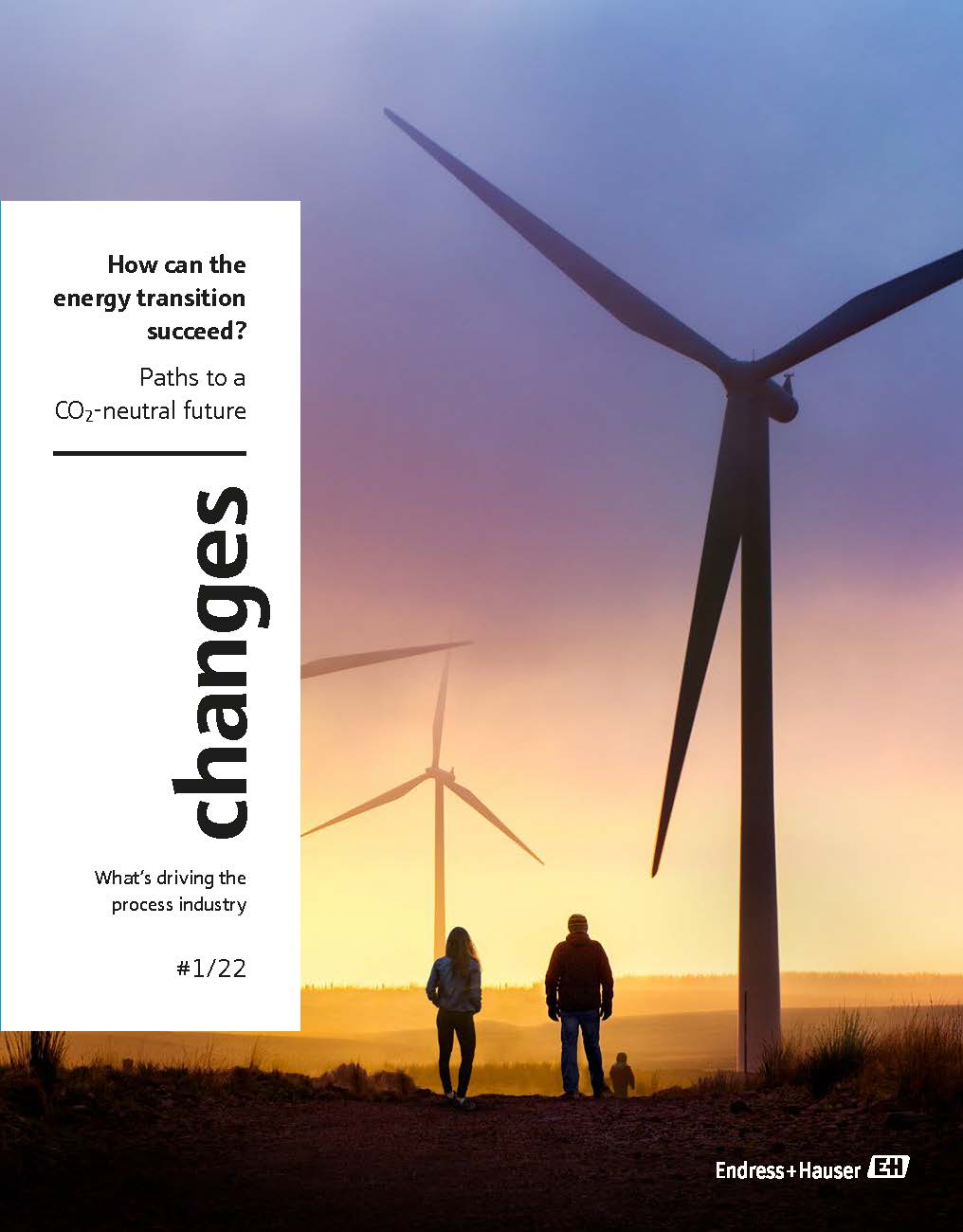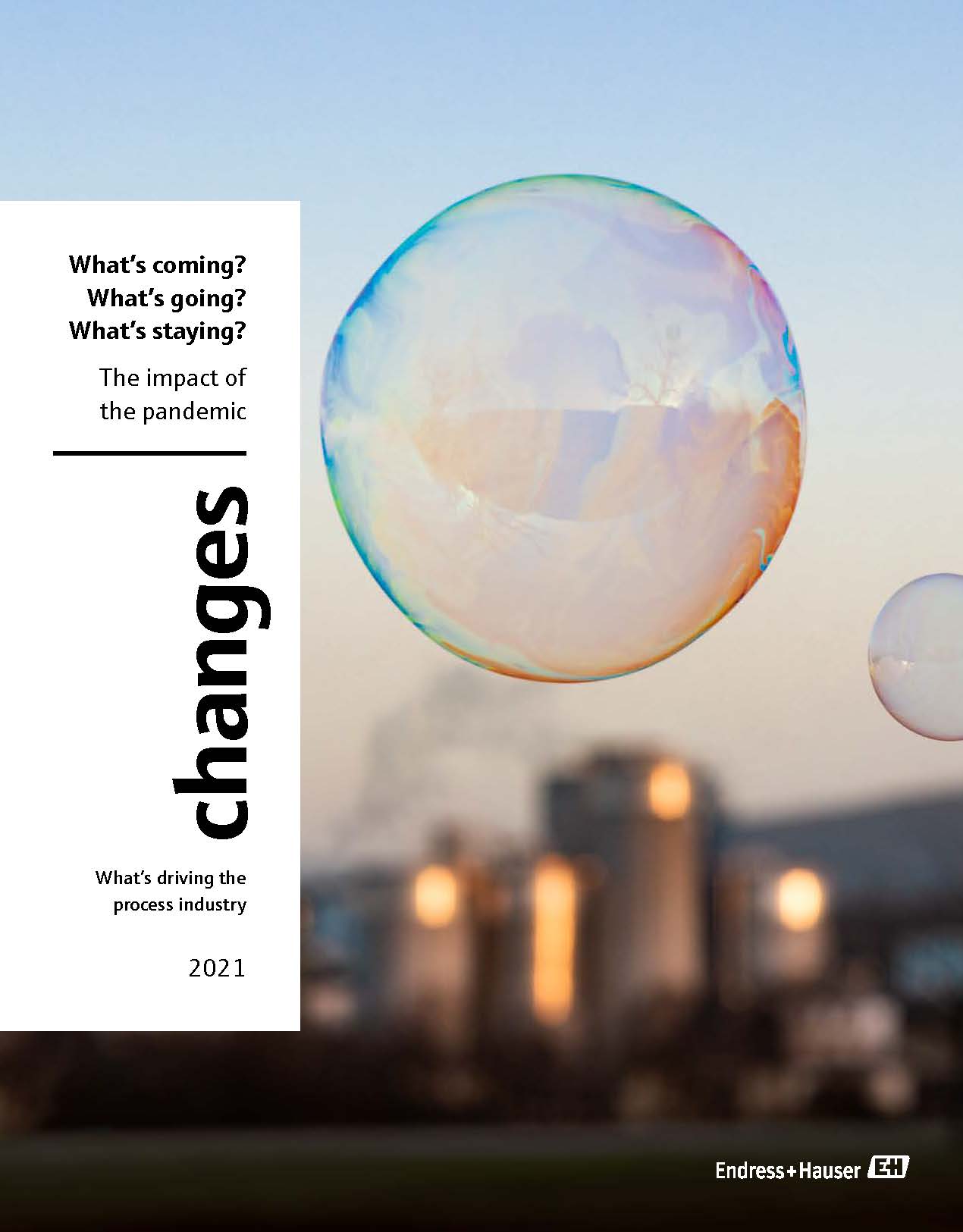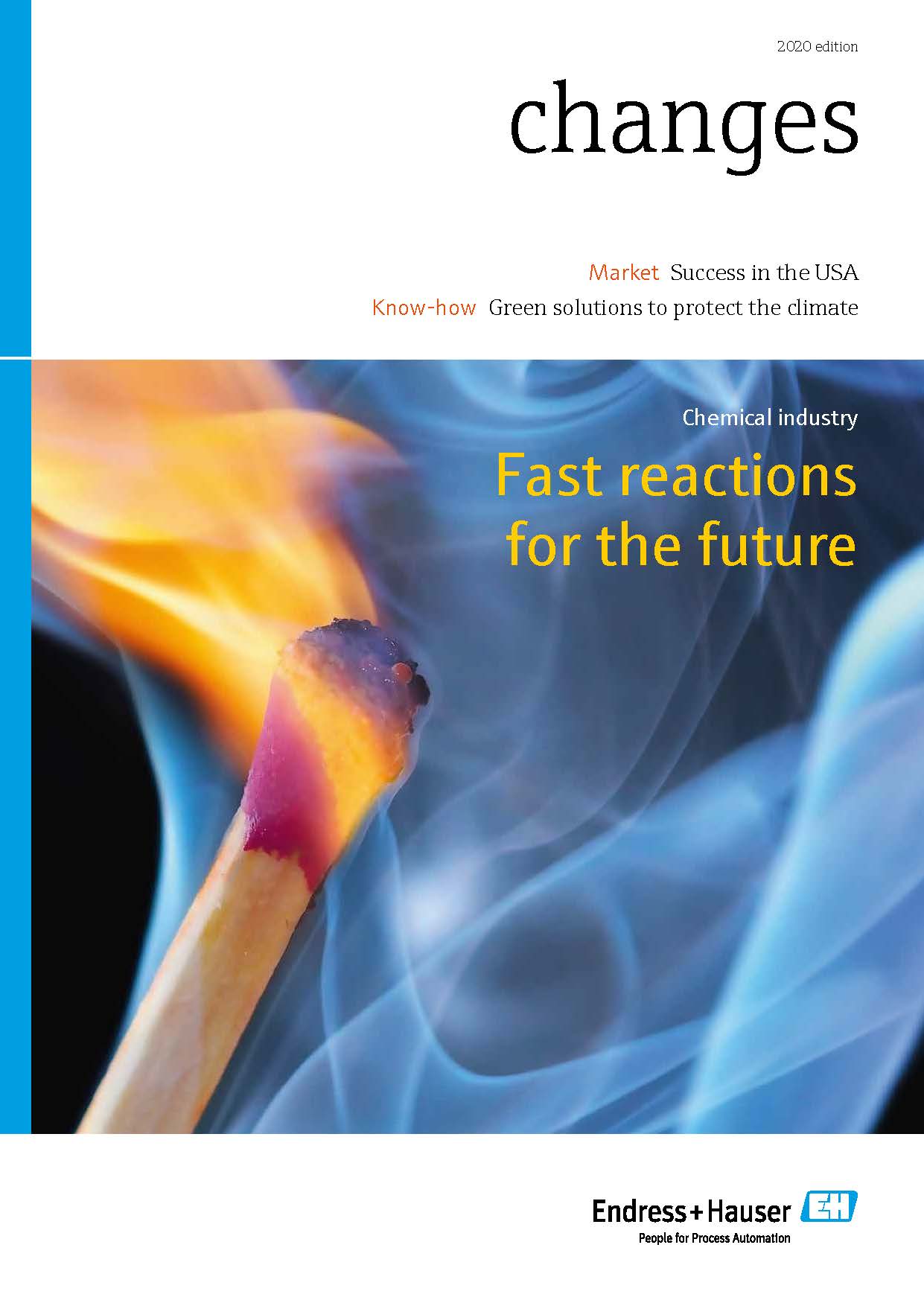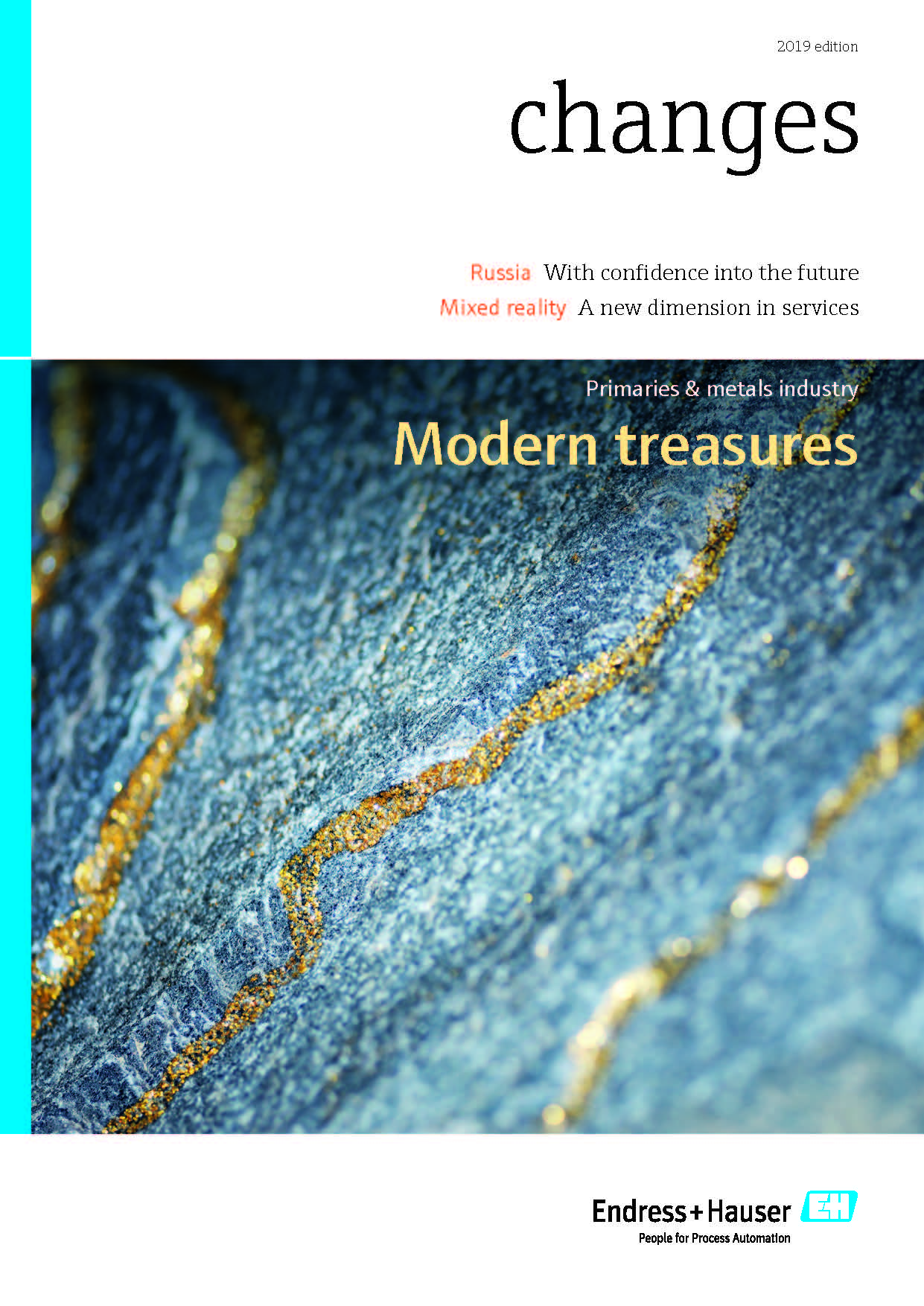A task for generations to come
Industry faces immense challenges along the path to climate neutrality. The metals sector illustrates just how vast this task is. The good news is that the necessary technologies are at hand. Burkhard Dahmen, CEO of plant manufacturer SMS group, and Matthias Altendorf, CEO of the Endress+Hauser Group, discuss how to put those technologies into practice.
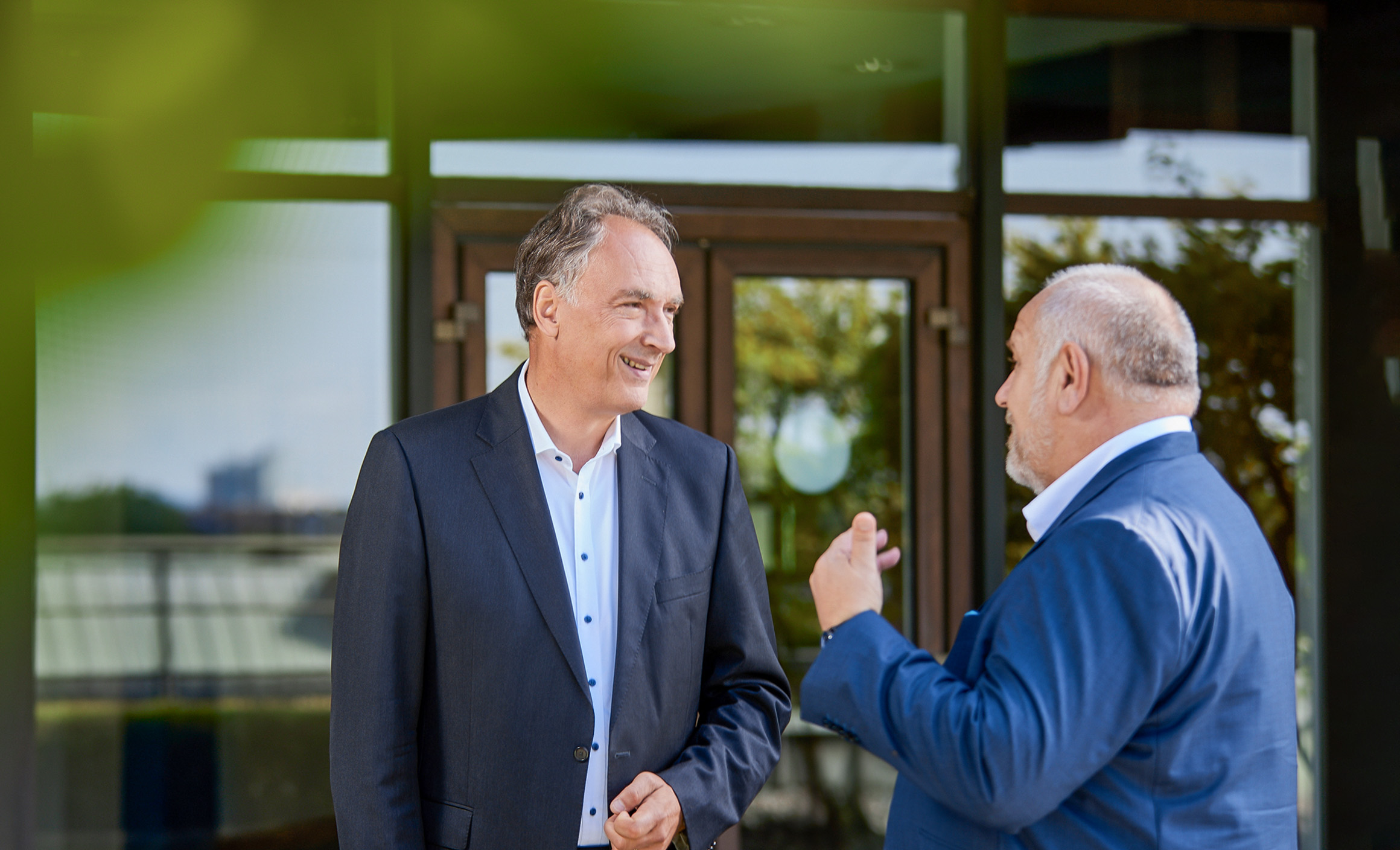
Mr Dahmen, SMS group is one of the leading companies in plant construction and mechanical engineering for the metals industry. Your aim is to become a trailblazer of a CO2-neutral metals industry, as embodied in the hashtag #turningmetalsgreen. How can your company contribute to the green transformation?
DAHMEN: Conventional production of steel, aluminum and copper creates a lot of carbon dioxide, accounting for some 10 percent of all global CO2 emissions. The steel industry is a particular factor because it uses coal to smelt iron ore in blast furnaces for producing pig iron. Carbon from the coal combines with oxygen from the iron ore to produce large amounts of CO2. We’re pursuing two technologies to change this. First, for converting iron ore into pig iron we’re using a direct reduction process that replaces coal with hydrogen or synthesis gas. Ideally, the hydrogen for this process is produced with renewable energy. We are implementing the direct reduction process at Thyssenkrupp Steel in Duisburg, Germany, and at Swedish startup H2 Green Steel. But we have a long way to go before the entire steel industry is in a position to decarbonize with this approach.
Is that why you’re pursuing an additional route?
DAHMEN: Exactly. We can optimize existing plants by injecting additional hydrogen or syngas into the blast furnace process. That significantly reduces the amount of coal needed to produce the pig iron, which in turn reduces CO2 emissions by at least one-third – potentially even as much as two-thirds. Parallel to this, under the banner of #turningmetalsgreen we are pursuing an end-to-end approach that includes recycling metals and recovering waste materials. For example, we’re working with Hamburg-based Aurubis to build a plant in the US for melting down and processing electronic waste. And our joint venture Primobius is developing a lithium-ion battery recycling plant for Mercedes-Benz where we first shred the batteries and then use a wet chemical process to extract their valuable raw materials such as cobalt and nickel.
Your examples show there is a lot of momentum. How significant are climate protection and sustainability as drivers of your business?
DAHMEN: The green transformation is a huge opportunity for us because we have the necessary technologies. We’re ready to go down this path with our customers. We’re not only concerned with selling our products but also actively pursue project development. We view ourselves as long-term partners for our customers; we discuss a great deal together and we work cooperatively to keep driving projects forward.
“The green transformation is a huge opportunity. We’re ready to go down this path with our customers.”
Burkhard Dahmen
CEO of SMS group
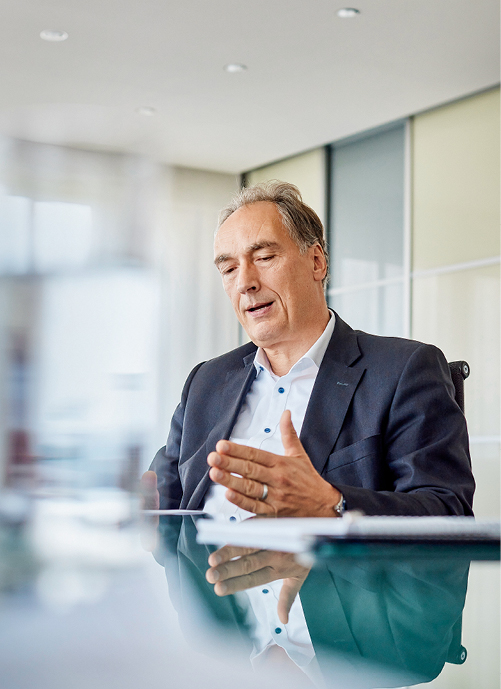
Mr Altendorf, the Endress+Hauser Global Customer Forum focused on the green transformation of the process industry. How are your customers tackling the sustainability issue?
ALTENDORF: Our customers all believe as a point of principle in their responsibility to take action against humanmade climate change, while also mitigating its social consequences. This is the path we aim to travel down with them. The steel industry is a prime example of our support all along the value chain, from mining, transport and smelting of the iron ore, to manufacture of the end product. With our measurement technology we can reveal the points and processes that have the potential to reduce the CO2 footprint. Yet it is my opinion that the path to carbon-neutral steel production still has a long way to go. We must be clear that the green transformation won’t be complete in just a few years but will be a project for generations to come.
Can you quantify that? How big of a task is it?
ALTENDORF: The size of the task becomes clear when you look at the numbers. Installed capacity stands at around 1.9 billion tonnes of raw steel worldwide. A single green plant with a direct reduction system produces only around 2.5 million tonnes – or just 0.13 percent of the global capacity. This is what makes it so important for CO2 reduction measures to span the entire value chain; in other words, not only the actual steel production, but also mining and transportation of the raw materials. We also need to take a closer look at how we generate hydrogen, because for the foreseeable future the available solar, wind and hydroelectric power plants will nowhere near suffice to cover the demand for renewable electricity to produce green hydrogen. Europe cannot manage the generation of green hydrogen on its own – it has to be done in other regions of the world as well.
DAHMEN: I’d like to add here that we need to protect our own industry in Europe. Climate goals established in Germany and Europe in general are much more ambitious than other countries. Hence my belief that it is key to tax imports from sources that don’t meet our climate targets.
ALTENDORF: I see it that way as well. Policymakers must create the necessary frameworks for fair competition in order to boost attractiveness of investments in green technologies. That also means protecting European industry up to a certain point.
What role do partnerships play in achieving climate and sustainability targets?
ALTENDORF: When the road ahead is long and involves taking the occasional risk, you need reliable business partners. Our customers know that we are not just selling them measurement technology but that we will still be in business 10 to 15 years from now, still helping them to operate their plants. Moreover, we continually invest in improving our products and services, so operators in turn can further optimize their processes and plants. In steel manufacturing and metals recycling, for example, we work to understand upcoming requirements and then drive our product development in that direction. Partnerships are also becoming increasingly important in the wake of digitalization, so that field data acquired by our instruments can be converted into knowledge by plant builders and passed on to the plant operators.
DAHMEN: When we build a plant, we need partners who are in it for the long haul, from project initiation and execution to on-site service while in operation. This needs flexible, solutions-oriented approaches where both partners have their sights on the common goal, not just their own interests. In this respect in particular, our experience with Endress+Hauser has been excellent.
“When the road ahead is long, you need reliable business partners.”
Matthias Altendorf
CEO of the Endress+Hauser Group
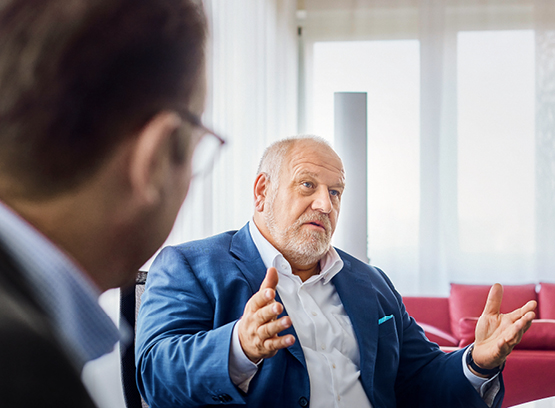
What do you see as noteworthy strengths in the partnership with Endress+Hauser?
DAHMEN: As a family-owned company, we are pleased to work with other family companies: there’s that similar corporate culture with its high regard for personal and professional interaction. Also, Endress+Hauser is well positioned with its global network. We’ve had excellent experience with availability, ad hoc service and on-site support at our construction sites. Last but not least we have a sustainable partnership. We develop solutions hand-in-hand with Endress+Hauser, and we see in them the potential to offer customers added value through new instrumentation for cutting-edge fields such as hydrogen.
Both Endress+Hauser and SMS are increasingly relying on services and digitalization. How significant is this development?
DAHMEN: We view services as a pivotal element of the partnership with our customers. Thanks to good margins, the service business makes a significant contribution to our operating result. It is additionally much more constant than the plant business, which is very cyclical. It provides the company with a steady stream of revenue, as well as with a valuable feedback channel regarding the real-life performance of our systems. These findings help in technology and product development. And last but not least, the service business is also an acquisition instrument. When we discover a need for modernization in a plant, we can approach our customers at an early stage and propose a solution.
ALTENDORF: Digital services also play a key role. Process plants are usually major investments that need to be protected. If a production system experiences an unplanned outage, every minute of downtime costs a lot of money. To avoid this, the reliability of the instrumentation is extremely important. The technology must be able to monitor itself. And we even go one step further. Our service people can use digital tools to actively warn plant operators if a process could potentially become problematic. The key phrase here is predictive maintenance. We want to automate such services to a greater extent in future, as the skilled labor shortage also affects service staff. Automation and digitalization enable us to expand our service offering, even though there is a tendency for fewer staff to be available.
Both of you will soon hand over your responsibilities to someone else: Mr Dahmen in October and Mr Altendorf at the end of the year. What, for you, were the most important aspects in arranging your successors?
DAHMEN: First off, I think it’s great that with Jochen Burg we found an internal candidate who is not only familiar with the corporate culture but personifies it. This will ensure strong continuity with respect to corporate values: highly important for a family company, particularly when it comes to the workforce and works council. Secondly, my successor is customer oriented, with the strategic vision to keep the company on course for the long term. This carries more weight than a short-term, profit-oriented mindset.
ALTENDORF: I too believe that a long-term perspective is crucial. My successor Peter Selders will have time to shape the company. We’re not talking about years, but decades. I also think it’s important that the new CEO advances the human-centric worldview that we have as a family-owned company. This vision gives our employees the confidence they need to effectively tackle the major challenges of the future.
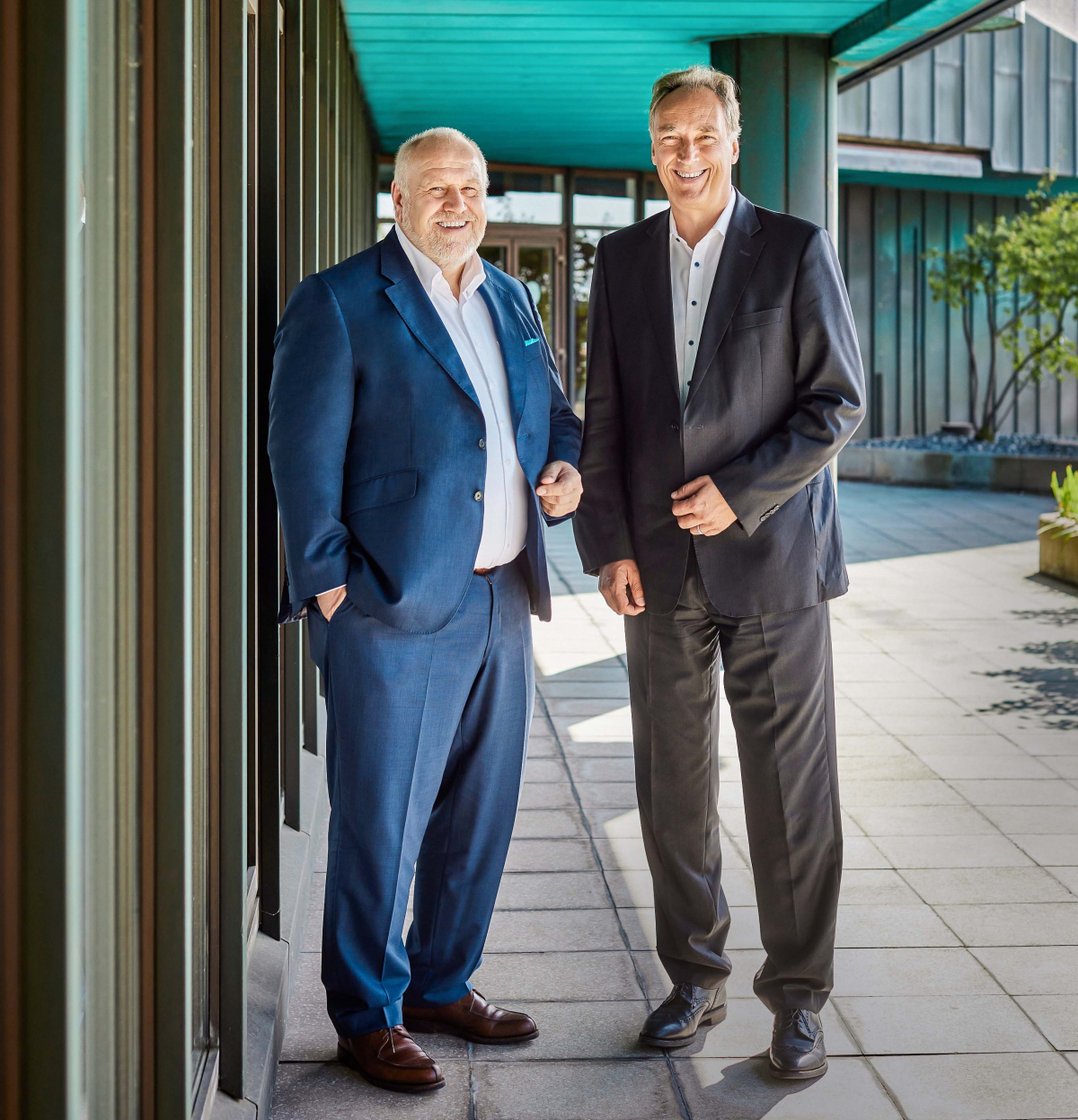
What will be the biggest challenge for your successors in the next three to five years?
DAHMEN: Both this year and 2022 saw a very high order intake. The first challenge will entail processing this backlog reliably and with optimized quality. Secondly, the focus will be on further expanding the service orientation of our company that I just mentioned in order to bring even more stability and continuity to our business. Generally speaking, continuing the decarbonization efforts in terms of products, technologies and services will represent another key challenge. In the longer term, I believe it’s important to further develop the SMS group in the areas of recycling and the reuse of residual materials to give us another mainstay in addition to metallurgical production, while at the same time rounding out our holistic ecological approach.
ALTENDORF: One challenge I see is to guide Endress+Hauser through a difficult economic phase. But if we focus on the right things, we can generate growth even in such an environment. For example, the energy transition will not be affected by a possible recession. I also see potential in other sectors – such as the life sciences industry, where development cycles are very long. Last but not least, digitalization and sustainability will continue to drive process engineering. In the medium term, our industry will continue to consolidate. This is a chance for Endress+Hauser because we have diversified successfully over the past 70 years. We have mastered complexity and are able to integrate new technologies such as artificial intelligence. And we are investing heavily. For this reason I’m looking to the future with optimism.
Published 08.11.2023, last updated 10.11.2023.
Dive into the world of the process industry through new exciting stories every month with our «changes» newsletter!
